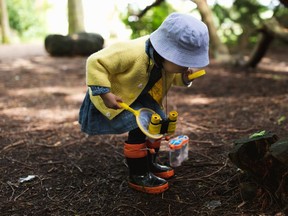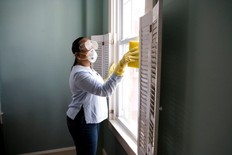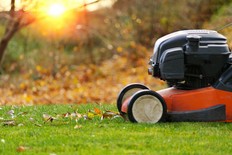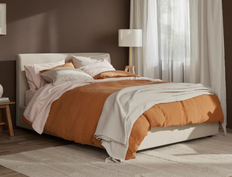Nieman: Pediatrician prescribes healthy dose of outdoor play
One of my favourite questions to families who come to see me in June is, “What are your plans this summer?”

Article content
A few days ago, I learned a new word: petrichor.
I was part of a group of men who enjoyed a meal together in a rural area close to Calgary. The dinner was nourishing, and as we transitioned from inside the restaurant to fresh air outside, I noticed a pleasant scent, made possible by soft rain that had fallen moments before we stepped outside.
Petrichor is the early scent generated by rain falling upon the soil: a compound, geosmin, found in soil bacteria, is involved in generating the pleasant smell. In addition, oils from plants also release a scent secondary to being exposed to rain.
This reminded me of another term I learned a few years ago at a pediatric conference, where the keynote speaker, Richard Louv, introduced me to the idea of NDD (nature-deficient disorder). I often refer families to Louv’s national best-selling book, Last Child in the Woods.
One of my favourite questions to families who come to see me in June is, “What are your plans this summer?” Very often, I hear about camping trips or hikes in the mountains close by. I make a point to affirm the parents for their efforts to allow their children to gain first-hand experience of the mental and physical health benefits of nature.
The list of benefits of being outdoors is quite long: better physical fitness; improved motor skills; reduced stress; better focus (attention); less anxiety; improved moods; enhanced cognitive skills; better self-esteem; improved sleep, and possibly a reduced risk of nearsightedness (myopia).
Getting children’s hands dirty by allowing them to play in soil and making mud pies can be a very good thing. When a grandparent accompanied one of my patients not so long ago, we had fun reminiscing in a rather nostalgic way about our childhoods—a time when there were no cellphones, laptops, personal computers or video games. Instead, we got dirty and played in the mud.
Exposure to dirt ironically improves our gut microbiome and leads to a better immune system. The hygiene hypothesis suggests that when children are not exposed to dirt, they have a higher risk of allergies later in life. (For parents who are keen to get more information on this, I suggest a report by the Wild Life Federation, The Dirt on Dirt; How getting dirty outdoors benefits kids, which can be found at www.nwf.org).
In Louv’s book, he writes about a fourth-grader who told him, “I like to play indoors better because that’s where all the electrical outlets are.”
In a few months hence, God-willing, I will reach the 16th year straight as a runner. My quest to run every day of my life for the rest of my life started in 2009. This uninterrupted streak involved 99 per cent of the time running outside.
But more often than not, I notice that when the weather is unsettled and cold, far fewer families with children are outside. So I did what most of us do these days and consulted AI for answers and ideas.
My impression is that though the list of ideas on how to get children away from electrical outlets is long, the bottom line is two things: be a role model as a parent and make sure the activities are fun/customized for the child’s temperament and personality.
Embracing all weather is one of AI’s suggestions, but at the end of the day, it is easier said than done. However, where there is a will, there is a way. And many parents who are tasked to parent neuro-diverse children confirm to me that when a child with ADHD or autism under supervision is taken into nature, the parent notices a shift in mood and well-being. In other words, it may be hard to be consistent and intentional, but the effort required pays off later.
It is indeed true that our backyard in Southern Alberta is admired globally. The opinions of world leaders who gathered here for the recent G7 summit were unanimous: the natural beauty of the Rockies is amazing. If the cost of visiting parks close by is too high, we are blessed to live in a city with one of the biggest natural spaces in Canada—Fish Creek Park.
Very often, parents who bring their children to me mention that one reason the family goes camping or hiking is that the grandparents and great-grandparents led by example, and it has become an intergenerational habit. As Wendell Berry wrote, “When going back makes sense, you are going forward.” We need to get our children back into nature more often.
For parents who prefer the use of electronics to access more information, I highly recommend Louv’s website, and particularly his regular blog: richardlouv.com/blog
Dr. Nieman is the founder of Centre 70 Pediatrics and has written for the Herald every month since 1999.
This article was originally published in the Calgary Herald on June 28, 2025.











